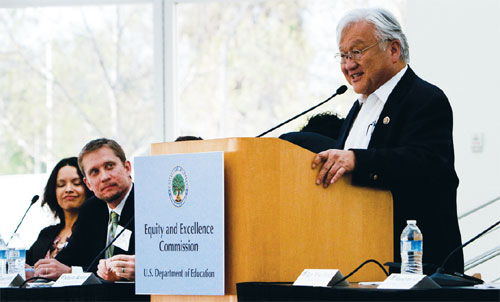Rep. Mike Honda: serving public from the heart
Updated: 2016-03-04 12:08
By Chang Jun in San Francisco(China Daily USA)
|
||||||||
|
US Rep. Mike Honda of California speaks on behalf of the Equity and Excellence Commission, which he created more than 10 years ago. The commission aims to solve disparities in the quality of educational opportunities in public schools. Honda represents California's 17th District, which includes the Silicon Valley region. Photos provided to China Daily |
US Congressman Mike Honda has many political goals, including fighting for a stronger and more just America, serving the most underprivileged, advancing a mutually beneficial relationship between the world's two largest economies, and fostering more exchanges between California and China.
Honda, 74, is a third-generation Japanese American who is a Democratic representative for California's 17th District, which covers Silicon Valley.
The only district in the continental United States with an Asian-American plurality (nearly 50 percent based on the 2010 Census), the 17th comprises the cities of Cupertino, Fremont, Milpitas, Newark, Santa Clara, San Jose and Sunnyvale.
High-tech giants such as Apple, Intel, Yahoo!, LinkedIn, Marvel and AMD call the area home.
Honda was born about five months before the Japanese attack on the US naval base in Pearl Harbor, Hawaii, on Dec 7, 1941. He was interned as a toddler with his family during World War II, in one of the US Japanese internment camps.
Honda realized at a young age that "this travesty of justice happened because no one in Washington said 'no'. With that experience, I wanted to dedicate myself to public service," Honda said in an exclusive interview with China Daily.
In early 1942, then-President Franklin Roosevelt signed Executive Order 9066 forcing all Japanese Americans to evacuate the West Coast. Approximately 120,000 people, many of whom were naturalized American citizens, were relocated to one of 10 internment camps across the country.
Honda's family was sent from California to Camp Amache in southeast Colorado and only allowed to return to Blossom Valley in San Jose in 1953, where his parents became strawberry sharecroppers.
Attending local schools and later San Jose State University, Honda interrupted his study there and volunteered for the US Peace Corps in El Salvador from 1965 to 1967, "which taught me about serving the most vulnerable populations," he said, adding that elective office is a way to continue serving the public.
Honda started his career as a science teacher at two public schools after completing his bachelor's in biological sciences and Spanish in 1968 and a master's degree in education in 1974.
He later was elected to the San Jose Unified School Board in 1981, the Santa Clara County Board of Supervisors in 1990, and the California state Assembly in 1996, where he served until 2001.
Honda won the Democratic nomination for the 15th Congressional District (it was changed to the 17th in 2013, based on Census data) by a 12-point margin in 2000. He shifted his political focus to Washington, where he is vocal on maintaining a strong China-US relationship and closer California-China exchanges.
Since the US and China established diplomatic relations in 1979, "our nations and relationship have progressed immensely", Honda said.
As a member of the bipartisan Congressional-Executive Commission on China (CECC), Honda said he knows that "the relationship between the world's two largest economies is crucial. Our two nations' relationship impacts trade, security, energy, and most importantly, the people-to-people ties.
"The peace and security of the Asia-Pacific region and our global community depend on China being a good leader and great partner," he said, adding that "our two nations must simply find a way to work together to strengthen our economic, strategic, and cross-cultural dialogue."
He said he is "proud of the historic US-China agreement on climate change. As a member of the Sustainable Energy and Environment Coalition and the Safe Climate Caucus, I applaud our nations collaborating to battle against man-made climate change."
Honda also is the first honorary chairman of the US-China Green Energy Council, a non-profit organization based in Silicon Valley that aims to promote and strengthen collaboration in Green Energy between the two countries. Objectives are to facilitate clean-tech collaborative initiatives and projects and serve as a platform for the integration of policy, business, investment and R&D projects.
As the two nations keep expanding exchanges and cooperation in a wide area - including science, innovation and technology - the number of Asian Americans or Chinese nationals suspected or being accused of economic espionage is also on the rise. The terms "economic espionage" and "trade secrets" have become disquieting and even worrisome among Asian Americans.
In two recent cases, scientists Xi Xiaoxing and Sherry Chen, both of Chinese origin and naturalized US citizens, faced US economic espionage charges. Honda joined his colleagues in the Congressional Asian Pacific American Caucus, writing two letters calling for an independent investigation into the arrests.
"We also held a press conference, where I was honored to meet Dr Xi and Ms Chen, and they shared their stories with me," said Honda. As the ranking member of the Subcommittee on Commerce, Justice, and Science Appropriations Committee, the lead Democrat, "I questioned FBI Director James Comey. I asked him about the shameful treatment of Sherry Chen and Dr. Xiaoxing Xi. I called on the director to apologize for the treatment of Xi and Chen.
"There has to be some sort of apology for these folks who have been put through this, losing their jobs," Honda said. "We're trying to seek some sort of justice for the folks who have been unfairly targeted."
Honda said he hopes that Comey "will finally apologize to these honorable people. Theirs are just two of many cases where racial profiling has hurt our nation, and its people, through injustice".
On bringing awareness, closure and fighting for the World War II-era victims of the Japanese Imperial Army, Honda's stance is firm and unwavering.
"It is simply the right thing to do," he said.
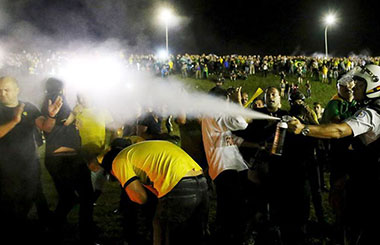
 Brazil's Lula sworn in over protests as Rousseff faces impeachment
Brazil's Lula sworn in over protests as Rousseff faces impeachment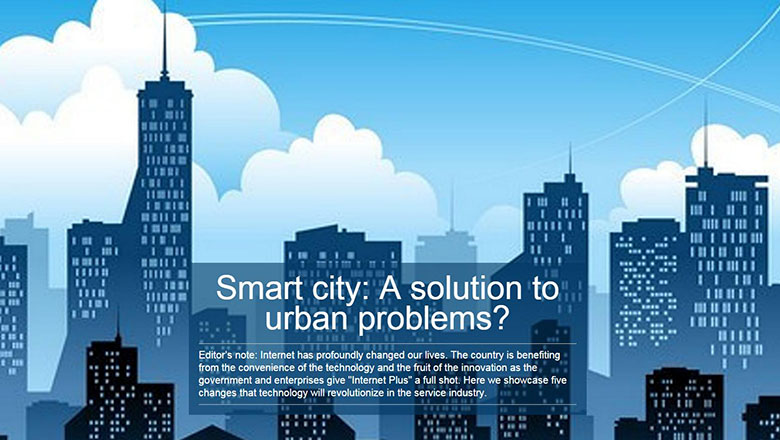
 Smart city: A solution to urban problems?
Smart city: A solution to urban problems?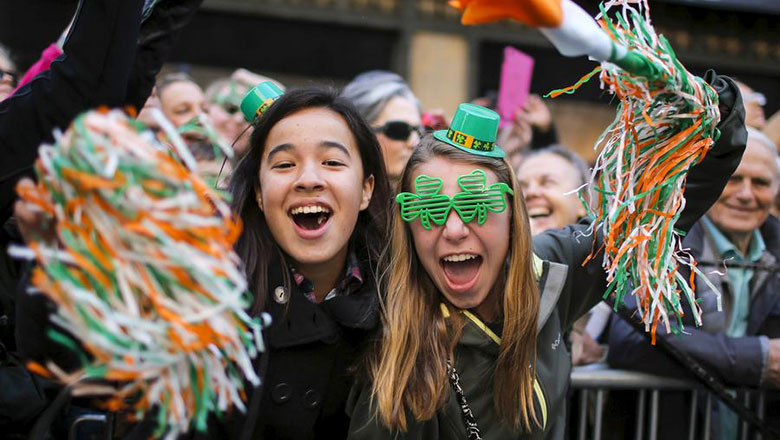
 St. Patrick's Day celebrated around world
St. Patrick's Day celebrated around world
 Top 10 most valuable global brands
Top 10 most valuable global brands
 These university canteen dishes will blow your mind
These university canteen dishes will blow your mind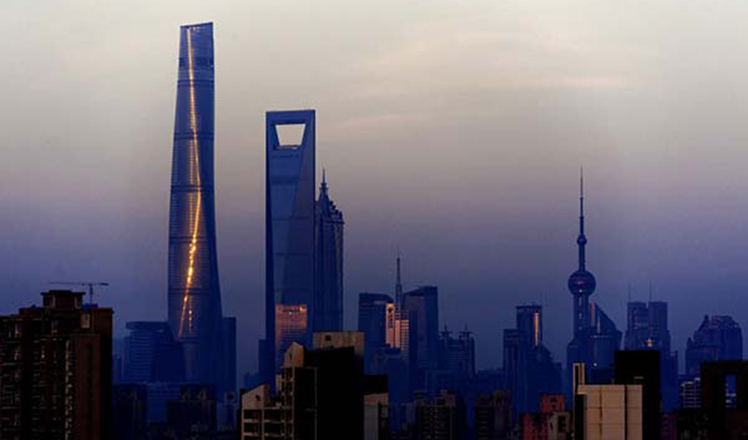
 Eslite bookstore story reads like a page-turner
Eslite bookstore story reads like a page-turner
 World's biggest computer and software fair kicks off in Germany
World's biggest computer and software fair kicks off in Germany
 Aerial view of cole flower fields presents unique pastoral charm
Aerial view of cole flower fields presents unique pastoral charm
Most Viewed
Editor's Picks

|

|

|

|

|

|
Today's Top News
Chinese biopharma debuts on Nasdaq
What ends Jeb Bush's White House hopes
Investigation for Nicolas's campaign
Will US-ASEAN meeting be good for region?
Accentuate the positive in Sino-US relations
Dangerous games on peninsula will have no winner
National Art Museum showing 400 puppets in new exhibition
Finest Chinese porcelains expected to fetch over $28 million
US Weekly

|

|
